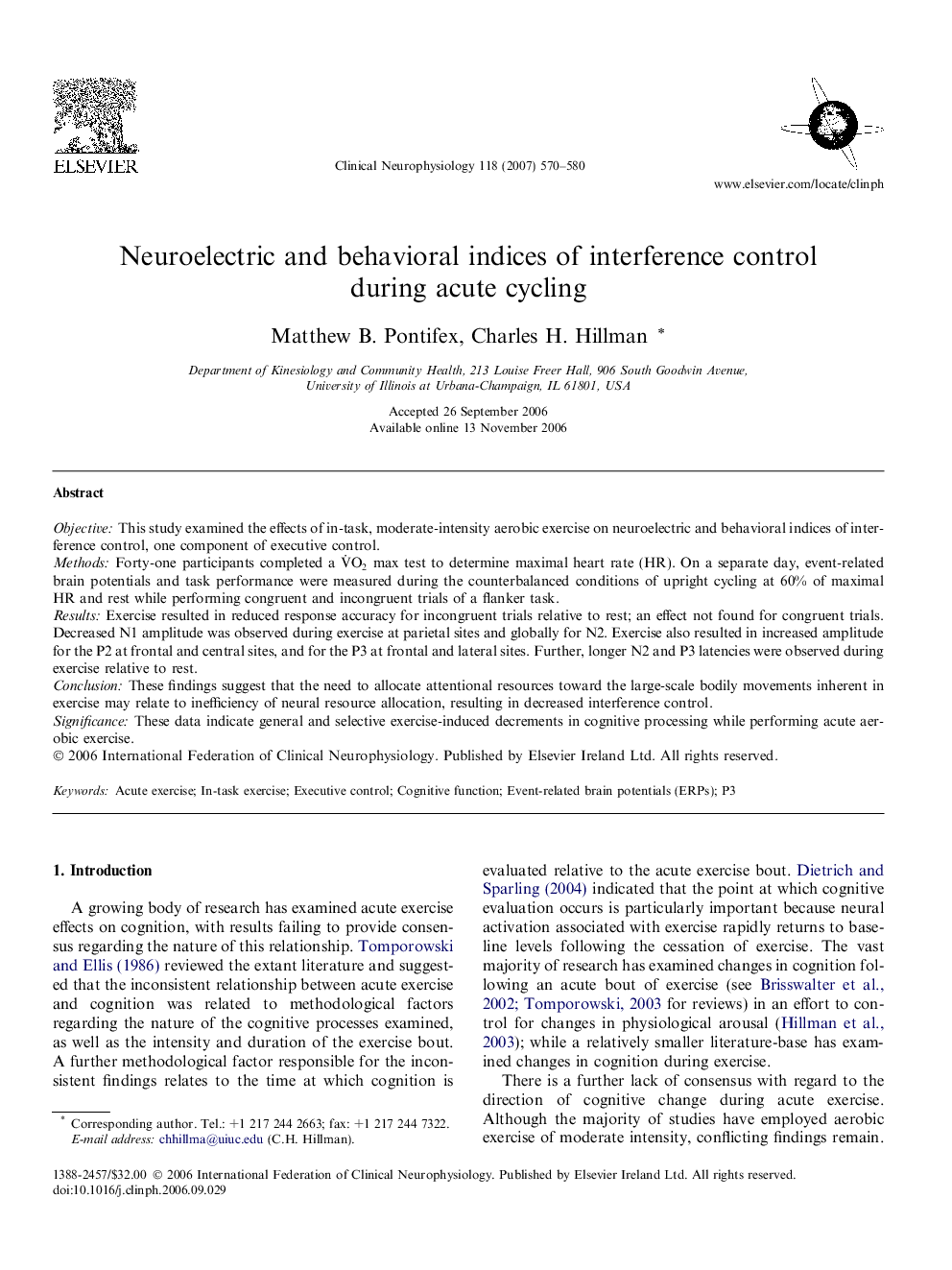| Article ID | Journal | Published Year | Pages | File Type |
|---|---|---|---|---|
| 3047845 | Clinical Neurophysiology | 2007 | 11 Pages |
ObjectiveThis study examined the effects of in-task, moderate-intensity aerobic exercise on neuroelectric and behavioral indices of interference control, one component of executive control.MethodsForty-one participants completed a V˙O2 max test to determine maximal heart rate (HR). On a separate day, event-related brain potentials and task performance were measured during the counterbalanced conditions of upright cycling at 60% of maximal HR and rest while performing congruent and incongruent trials of a flanker task.ResultsExercise resulted in reduced response accuracy for incongruent trials relative to rest; an effect not found for congruent trials. Decreased N1 amplitude was observed during exercise at parietal sites and globally for N2. Exercise also resulted in increased amplitude for the P2 at frontal and central sites, and for the P3 at frontal and lateral sites. Further, longer N2 and P3 latencies were observed during exercise relative to rest.ConclusionThese findings suggest that the need to allocate attentional resources toward the large-scale bodily movements inherent in exercise may relate to inefficiency of neural resource allocation, resulting in decreased interference control.SignificanceThese data indicate general and selective exercise-induced decrements in cognitive processing while performing acute aerobic exercise.
